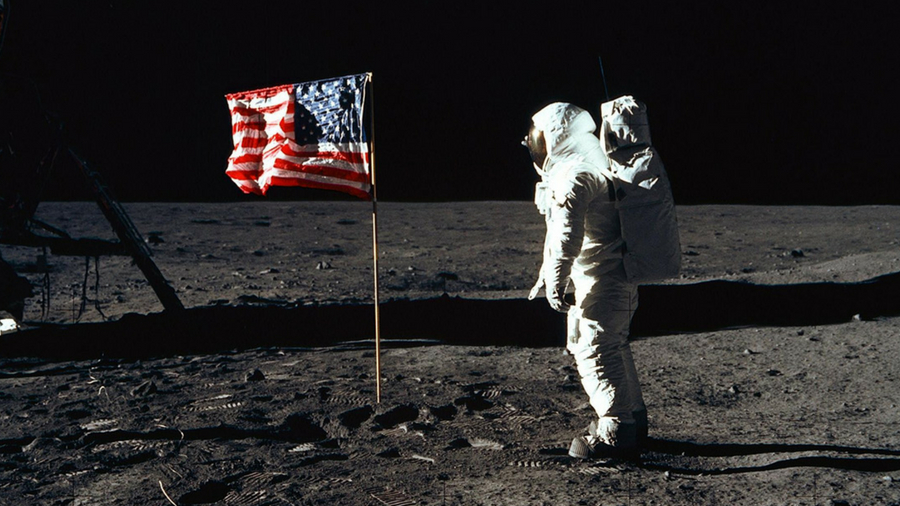NASA rockets could soon be branded by private companies
One small step for man, one giant leap for Nike

Sign up for breaking news, reviews, opinion, top tech deals, and more.
You are now subscribed
Your newsletter sign-up was successful
The year is 2035, Kanye West is president of the United States, and the first ever manned mission to Mars has just touched down on the red planet. NASA’s experts have prevailed over funding shortages, dangerous radiation levels, and have sourced brave volunteers to go where no man has gone before.
The intrepid astronauts step gingerly out of the spacecraft and drive a flag into the dusty, orange soil. As they look on at this first artifact of humanity on the planet, the welcoming golden arches of McDonald’s are reflected in their visors.
One McRocket meal, hold the fries
It may sound like the premise for a dystopian science fiction novel, but the privatization of spaceflight could well be a reality, thanks to the new administrator of NASA, Jim Brindenstine, who has just launched an advisory committee that will look into commercializing its operations.
Right now, they are looking into branding for low orbit space flight only, so we don’t need to worry about McDonald's flags on Mars or a Starbucks on the moon for the time being.
However, naming rights for rockets could be up for grabs, as well as product endorsements by astronauts, much like athletes are sponsored by sports brands.

Scientific integrity
Although there is no confirmation that increased privatization will go ahead (hence the need for a committee), Brindenstine has suggested that it would help NASA to compete with private space exploration companies like Elon Musk’s Space X.
There are concerns that astronauts could be tempted jump ship to private spaceflight companies because they could stand to make more money, something that Brindenstine hopes to address with private sponsorship deals.
Sign up for breaking news, reviews, opinion, top tech deals, and more.
Whether the public take to this idea remains to be seen, as NASA enjoys a reputation for being a ‘safe space’ for scientific pursuit, uncorrupted by free enterprise.

Olivia was previously TechRadar's Senior Editor - Home Entertainment, covering everything from headphones to TVs. Based in London, she's a popular music graduate who worked in the music industry before finding her calling in journalism. She's previously been interviewed on BBC Radio 5 Live on the subject of multi-room audio, chaired panel discussions on diversity in music festival lineups, and her bylines include T3, Stereoboard, What to Watch, Top Ten Reviews, Creative Bloq, and Croco Magazine. Olivia now has a career in PR.